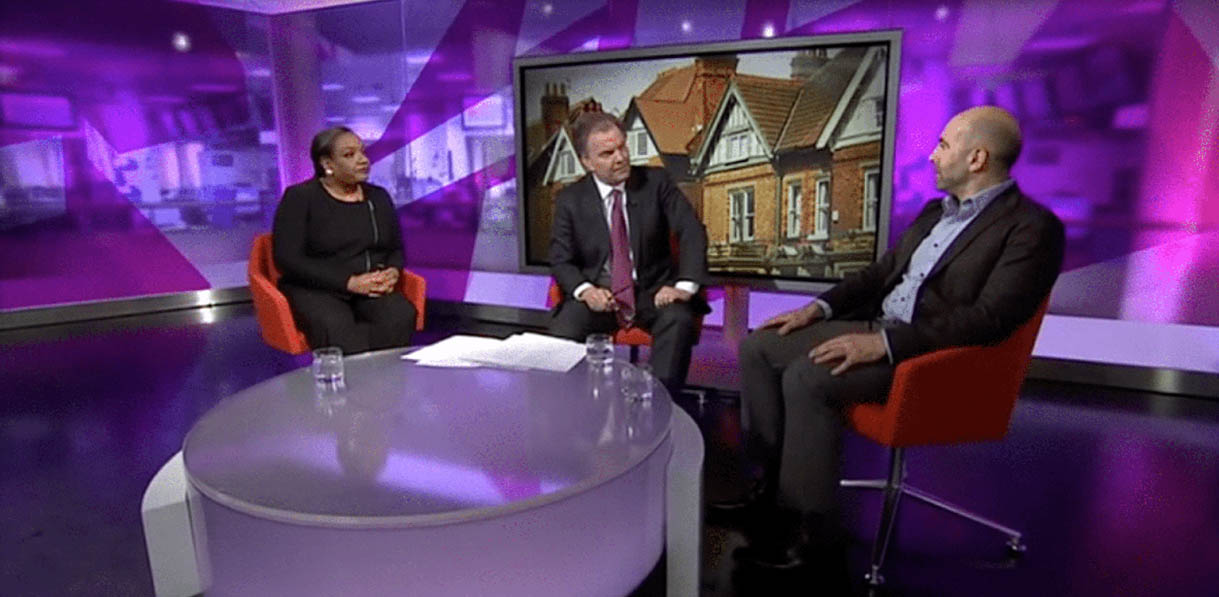I was interviewed for a feature in the Mail on Sunday this week about whether now is a good time to invest in property. They interviewed a number of landlords and I was the one who struck a note of caution. I was amazed that Richard Dyson, the deputy finance editor actually quoted me saying that property is not an easy win and that providing homes for people is a serious responsibility. I’ve always been uncomfortable with terms like ‘property investor’ as it ignores the very human dimension of housing people in our communities. I see myself running a ‘property business’, my aim is to provide an excellent service whilst earning a decent living.
So is now a good time to start or develop your property business? There’s no doubt that rental yields are pretty strong across the UK – 7% according to The Mail on Sunday article, though 10% is not unusual in places like Hull and Stoke on Trent. Landlords in the strongest position now will have street properties rather than new build flats and will have bought in areas where these properties held their value – or in London may well have increased – close to public transport and/or with a clear target market in mind. They will have been able to refinance to low mortgage rates and stayed on trackers at around 1% above Bank of England base rate. The combination of rising rents and relatively cheap finance means healthy rental profits.
Prices are flat or falling slightly across most of the UK, down 0.6% in the year to July 2012 according to Halifax. However prices in Greater London have risen by 8.8% over the past year according to Rightmove. The much bigger question is what are the trends going forward? Most experts agree that Bank of England base rate will remain at 0.5% for the next 2-3 years. Unemployment has fallen slightly from 8.2% to 8% and CPI inflation remains above the 2% target at 2.8% though most commentators believe the trend is downwards. The biggest threat to the UK economy in my view are external threats from the eurozone crisis and the likely impact of austerity measures. However the shortage of housing in the UK continues and there are no plans to remove planning constraints or build social housing. I predict that house prices will remain flat for the next 2 years, except in London where they will continue to rise between 0 and 5%. I expect a recovery in the market to begin in 2018 – so buy now before the recovery gets going.
There are some challenges. Pre 2007, 85% loan to value borrowing was the norm which was great if you were starting out or refinancing to develop your business. Now most lending is at 75% loan to value which means you need a sizeable chunk of money for your deposit. There are plenty of limiting criteria too. Some lenders will not lend to first time landlords or will only lend to landlords with a limited number of properties. If you’re borrowing for houses in multiple occupation or ex local authority flats then your choice of lenders will be restricted – NLA mortgages is the best source of help. If you’re buying to improve and then refinance, then only The Mortgageworks will provide a light refurbishment mortgage. Other lenders place restrictions on capital raising and the six month rule (see my factsheet) might mean you end up on bridging finance – ouch! I say that because it can be as much as 1.35% per month with a 1.5% arrangement fee, a bit like borrowing on a credit card. Happily this area of finance is getting more competitive. One area that has generally deteriorated is the preponderance of high arrangement fees with specialist buy to let lenders often the worst offenders. An arrangement fee of 3.5% is anathema to most London landlords where loans will usually exceed £150,000.
The default property of choice for landlords across the UK remains the two bed flat or the terraced house. Many landlords will buy flats that are less desirable to owner occupiers, perhaps because they are in ex local authority blocks or above shops, but will let easily in good condition. There are a number of factors that are beginning to affect property choice however. In January 2012, single people renting alone aged 25 to 35 ceased to be eligible for the one bed flat local housing rate and are now entitled to the shared accommodation rate. This is having a big impact on the rentability of one bed flats in areas where there are a lot of benefit claimants. We may well see rental yields for one bed flats fall and I would advise against buying them at the moment except in prime central London, unless you are absolutely sure you know your local market. A number of local authorities are introducing Article 4 directions which require landlords to seek planning permission for 2, 3 or 4 bedroom houses to be shared. Some authorities like Barking and Dagenham have said that they will not give permission for a 3 bed house or larger to be shared – these can only be occupied by a single family. This manipulation of the housing market could cause prices of affected properties to fall because landlords stop buying them (or rise is there is a gentrification effect). Sharers will also be displaced into other areas and landlords that remain will have to compete for the few families that want to rent.
I continue to have wonderful tenants and find that my properties rent within 1-3 weeks, depending on the area. I always use trusted agents to find and vet tenants for me. Newcomers should be reminded that we need credit checks, employment and landlord checks and references, ID checks, NI and driving license numbers and bank details. These will all help should you need to chase the tenant for arrears. You should be suspicious if tenants are reluctant to provide details. I am also suspicious of grand gestures like 6 months rent up front. Remember the most important thing you can do as a landlord is develop a good honest relationship with your tenant. If the agent has found them for you, have an induction meeting to open up lines of communication, encourage reporting of repairs, provide good customer service and deal with them promptly. Manage arrears tightly by communicating within three days of late payment and carry out regular inspections – every three months until you build up trust. All your paperwork: contract, inventory, deposit protection, energy performance and gas safety certificates should be tip top. It is heartening to read in the NLAs latest survey that 79% of tenants are satisfied or very satisfied with their landlord. The re-entry of some lenders into the buy to let market is evidence that arrears in this type of lending are no worse that residential lending. The riskiest area in terms of arrears remains tenants on benefits, largely because the benefit is not paid directly to the landlord. I hear stories of tenants routinely keeping the last 8 weeks rent from the landlord because they know there is nothing the landlord can do about it. Remember that letting a property is one of the few services people can use for around 5 months (whilst the landlord undertakes legal proceedings) without paying a penny.
If you’re unlucky enough to experience arrears, this along with maintenance costs, agents fees and void periods will eat into your profits, so you need to think carefully about the minimum gross yield you are prepared to live with. For me it is 6%, quite hard to come by in London. In the north east many landlords are used to yields of 10%, whilst in prime central London 3-4% is the norm. Although house prices are flat in much of the UK, remember there is no single UK housing market, there are lots of micro markets. London is an obvious one seeing increases over 8% in the past year. Demand to buy houses has been subdued by the difficulties around lending. Not only do you need a big deposit but you need a squeaky clean credit record and with some lenders an impressive credit score. There are some bargains around, there will always be people who have to sell right now because of circumstances and sometimes in a hurry.
Are you an armchair investor? If so, please don’t buy property. Go to fidelity.co.uk and buy some funds. If you want to get involved in bricks and mortar, hunting down the right financial product and being a bit of a community worker, then I welcome you to the world of property. And if you’re already doing it and you’re doing it well – stick around. The Private Rented Sector is now 17.5% and growing – so the housing market needs you more than ever.









